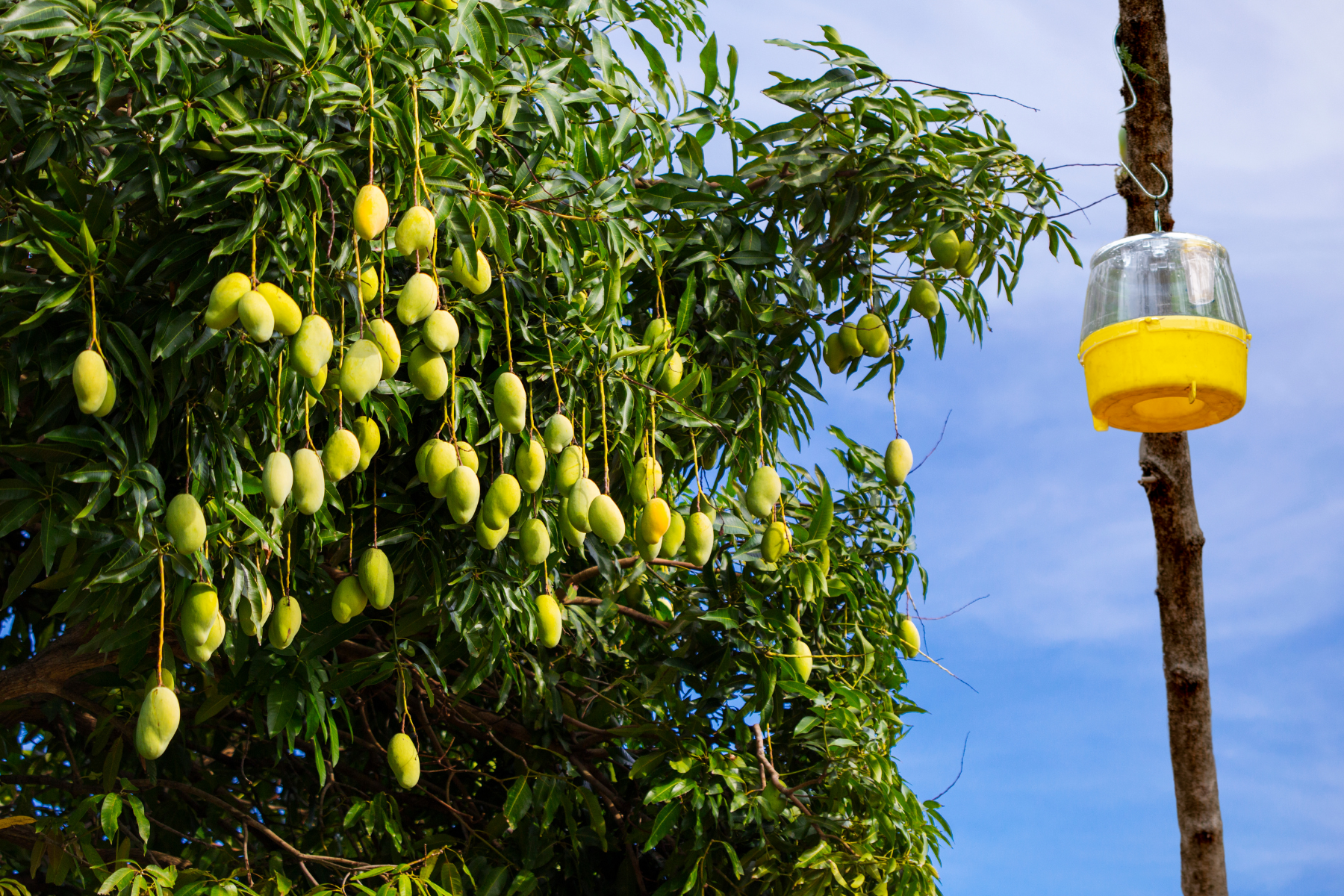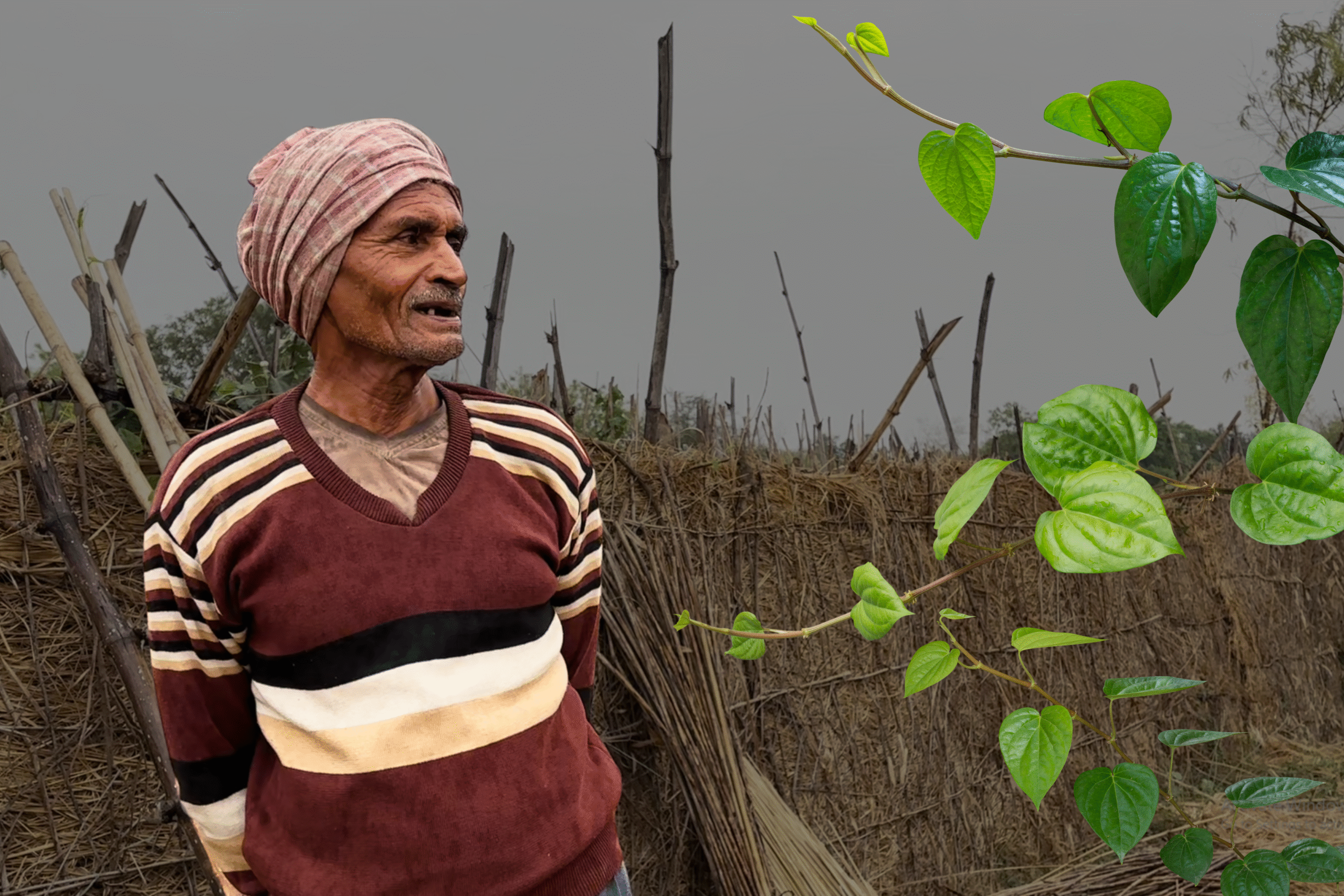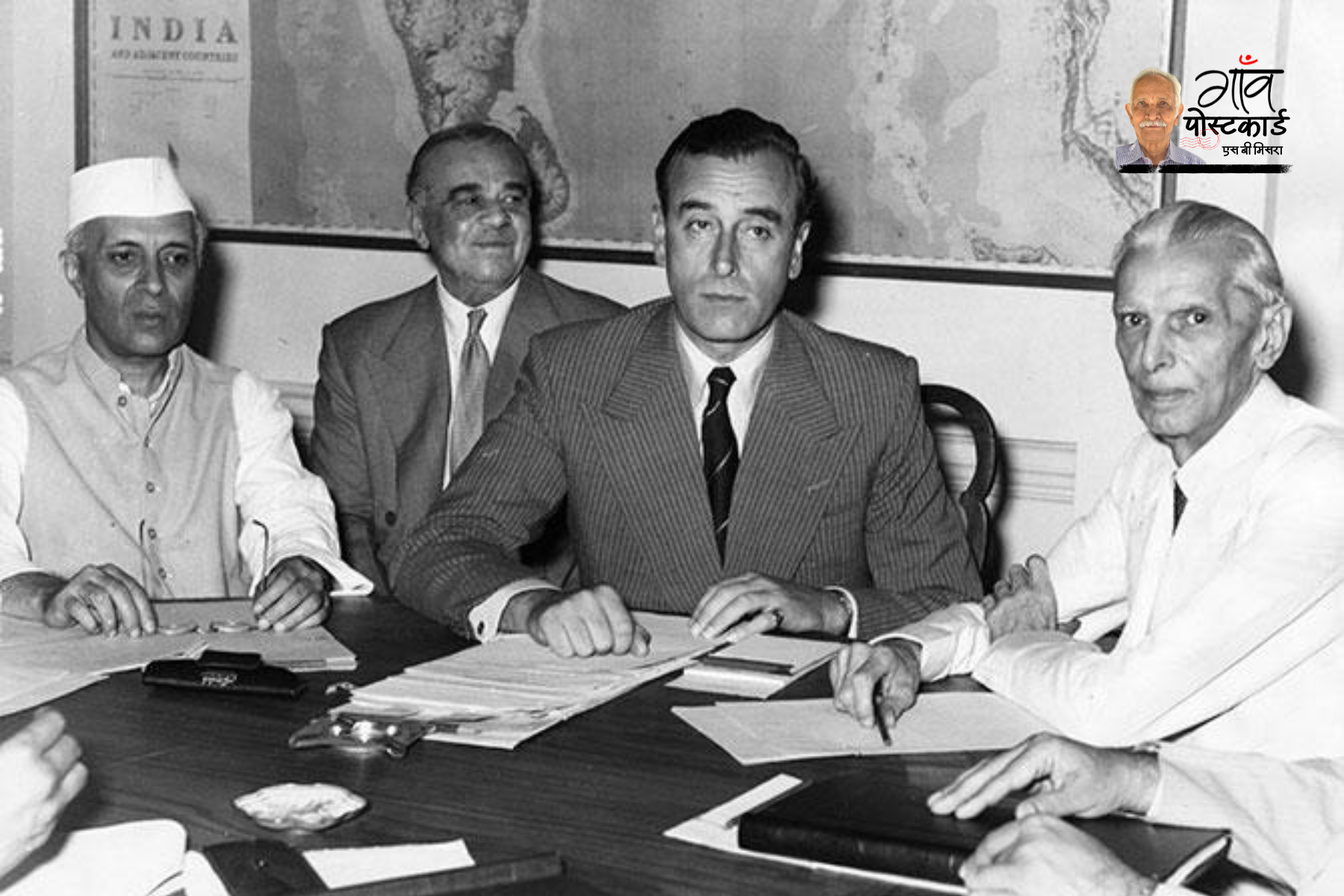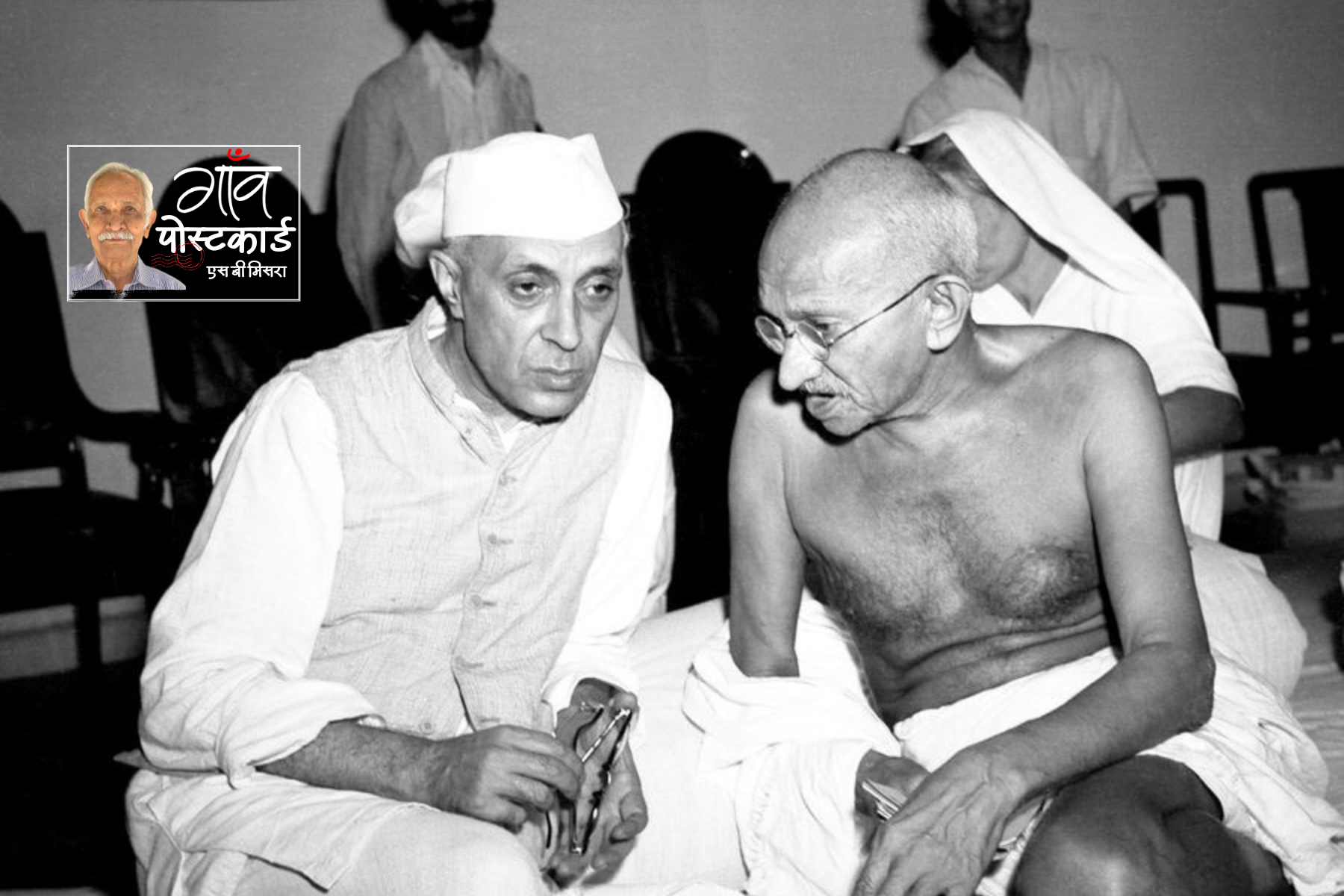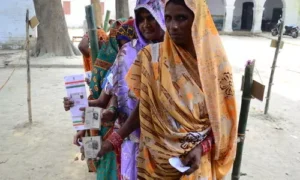Brahmpur (Gorakhpur), Uttar Pradesh
Nisha was in the fields working when she got her periods for the first time three years back. The 14-year-old girl of Brahmpur village was petrified. “I saw the blood and came running back home, scared. I asked my elder sister what it was, but she only directed me to get a cloth piece and use it to contain the flow. She did not explain anything,” Nisha told Gaon Connection.
It was a scary experience for Nisha who had no idea what was happening in her body. No one had spoken to her about the changes that happen at puberty.
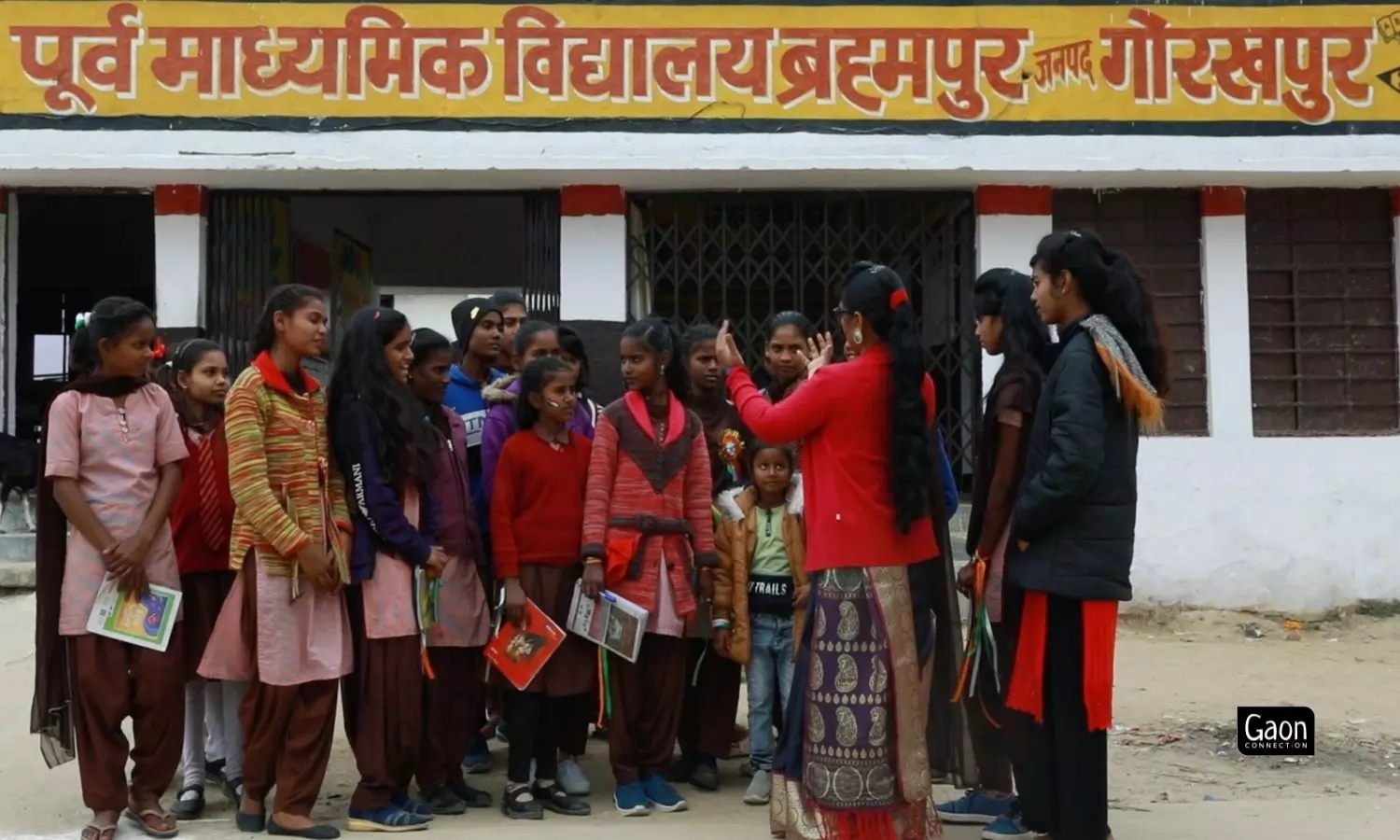
Shringika Rao tells her girl students about the right and wrong touch, and to be aware when they are closer to their male peers.
Nisha continued using cloth till she got enrolled in Brahmpur Upper Primary School in Gorakhpur district of Uttar Pradesh, where she met her teacher, Shringika Rao. It was the first time a confused Nisha was explained about menstruation and physical changes during puberty, by her teacher. She also gave the young girl a sanitary pad and showed her how to use it.
“Most of the girls here use cloth instead of sanitary pads. They also did not know how to keep themselves clean and the importance of changing the menstrual cloth frequently,” Rao, who teaches grade VI, VII, and VIII students at the upper primary school, told Gaon Connection.
Also Read: Gaon Connection launches its monthly e-magazine, Teacher Connection
“I tell them about the infections they can get if they are not hygienic, and how that can lead to serious health problems. I even tell them about how best to wash the cloth and keep it clean,” the teacher added.
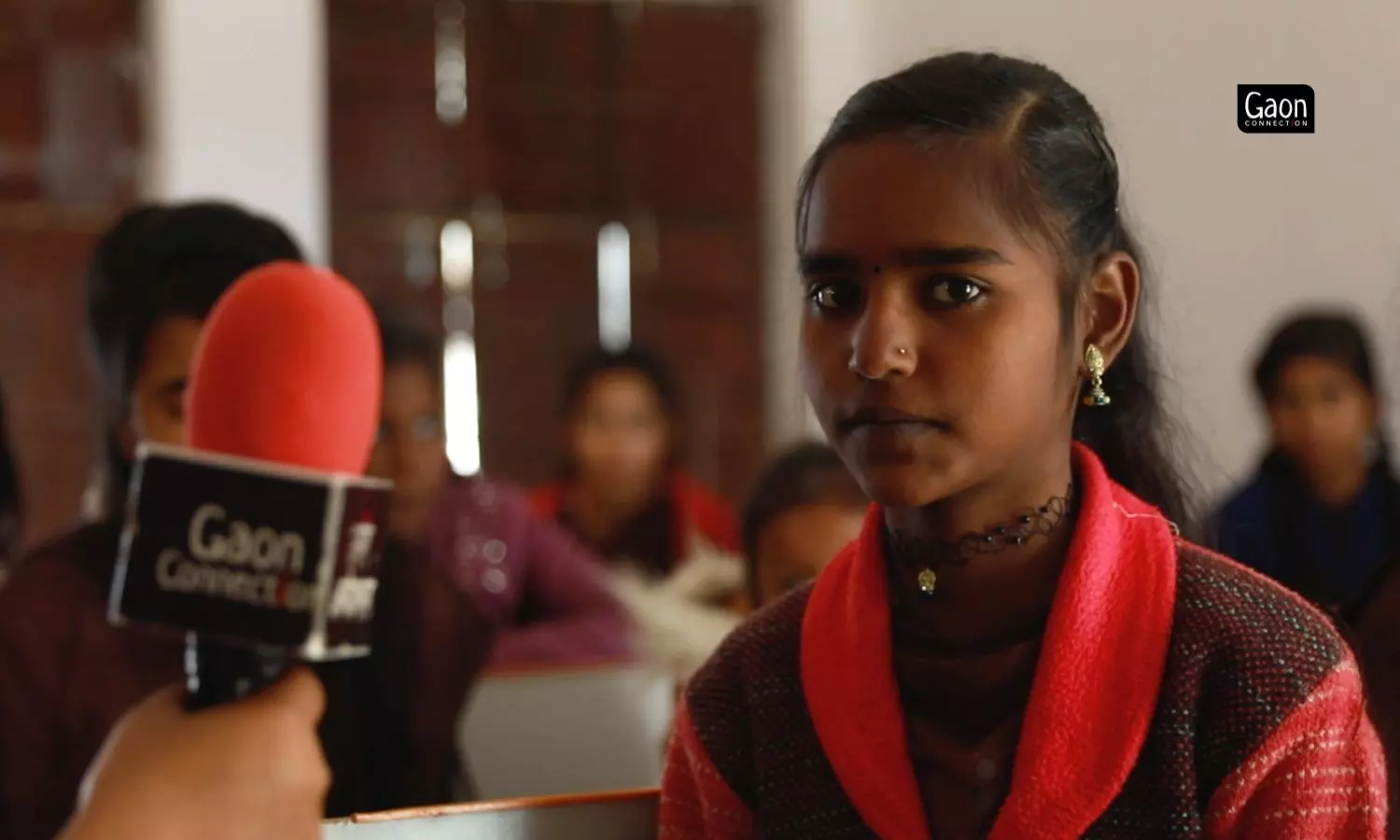
Fourteen-year-old Anjali, a student of class VII, was too shy to discuss menstruation with her male peers.
It’s been three years since Rao has been taking ‘exclusive’ classes for the girl students of the school. After she assigns class work to the boys, Rao takes the girls from classes VI,VII and VIII to another classroom where she educates them about puberty, menstrual hygiene, and also good-touch-and-bad-touch. These are the topics that are often spoken in hushed tones in rural India and Rao is trying to inform and educate the village girls.
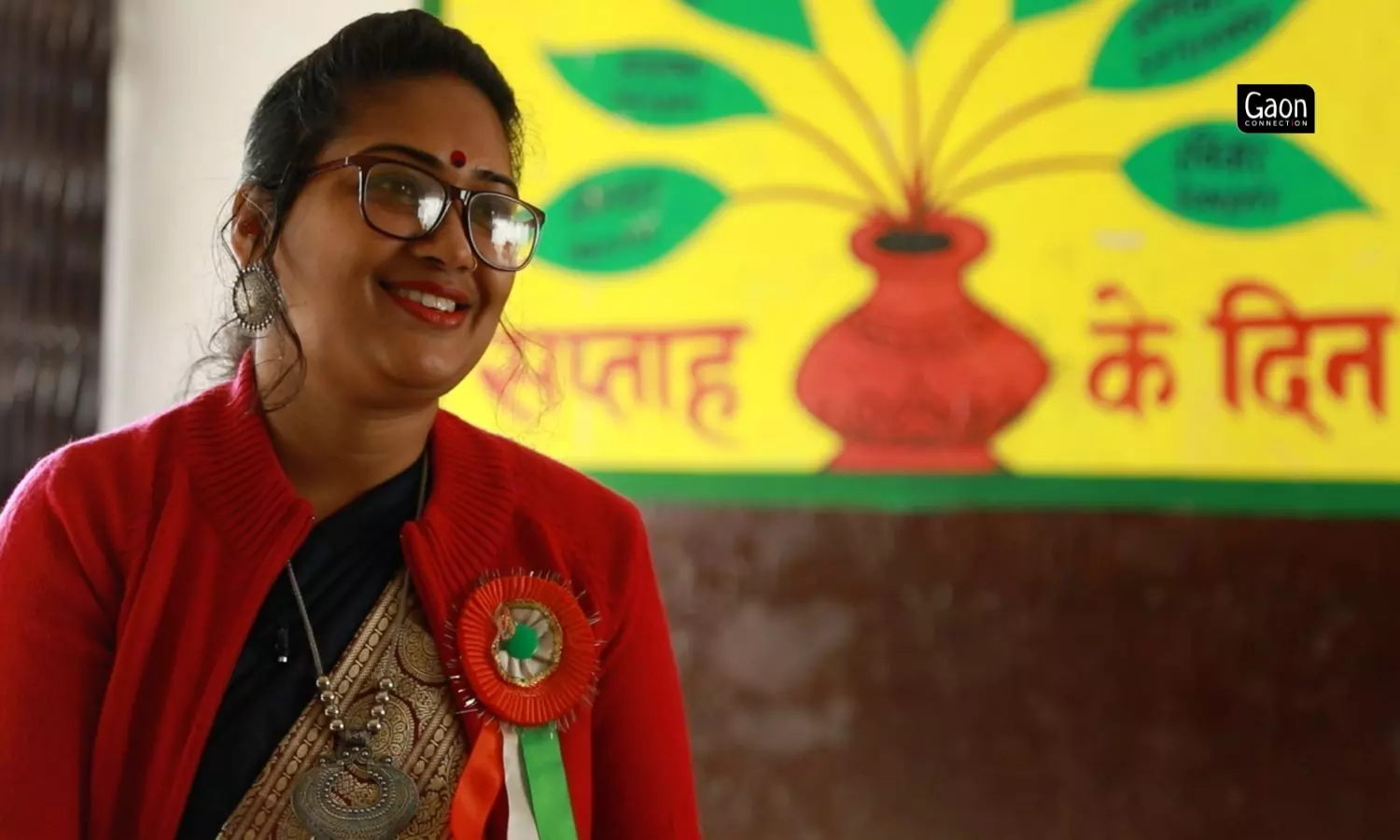
It’s been three years since Shringika Rao has been taking ‘exclusive’ classes for the girl students of the school.
“I try to talk to them the same way I discuss things with my own daughter,” the teacher said.
When Rao was posted to the Brahmpur government school in February 2020, she realised that there was a dismal lack of awareness amongst the girls about menstrual health.
“I taught them to make a solution with neem leaves boiled in water, and asked them to clean themselves and their period cloth with this,” the teacher said.
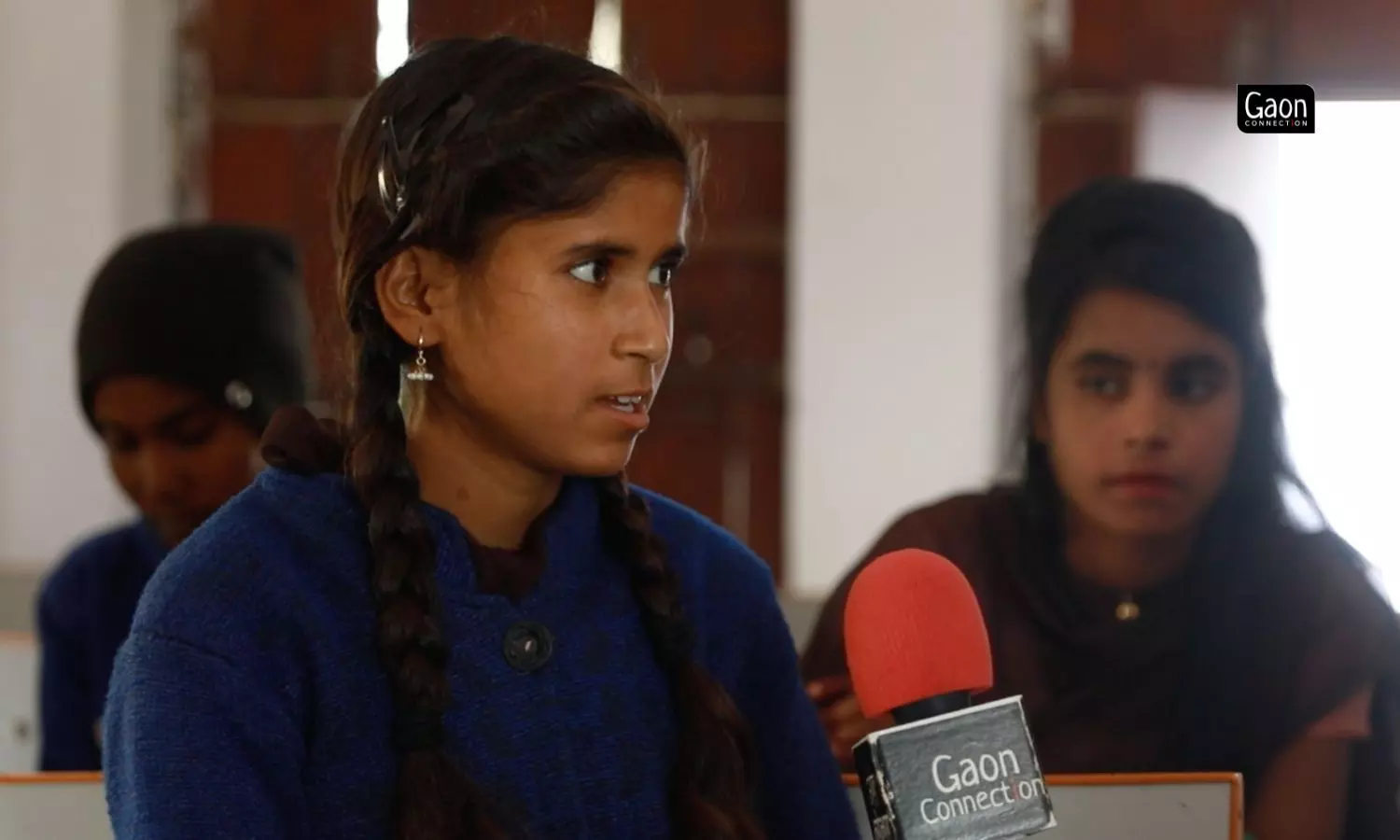
Menstruation was a scary experience for Nisha who had no idea what was happening in her body.
“I tell them about the right and wrong touch. How they should be aware when they are closer to their male peers. My mother is also a teacher and we never had such barriers. I share the same bond with my daughter too. I openly speak to her about sex for her to understand her hormonal changes and how she is to respond to it,” she added.
Also Read: “What have I achieved?” — a rural primary school teacher asks herself and then finds the answer
The girls of the upper primary school said they were often badgered by their male classmates about what exactly they do in the ‘exclusive’ classes.
Fourteen-year-old Anjali, a student of class VII, was too shy to disclose to them what really transpired in that class. Rao was instrumental in assuring Anjali that there was no shame in discussing menstruation.
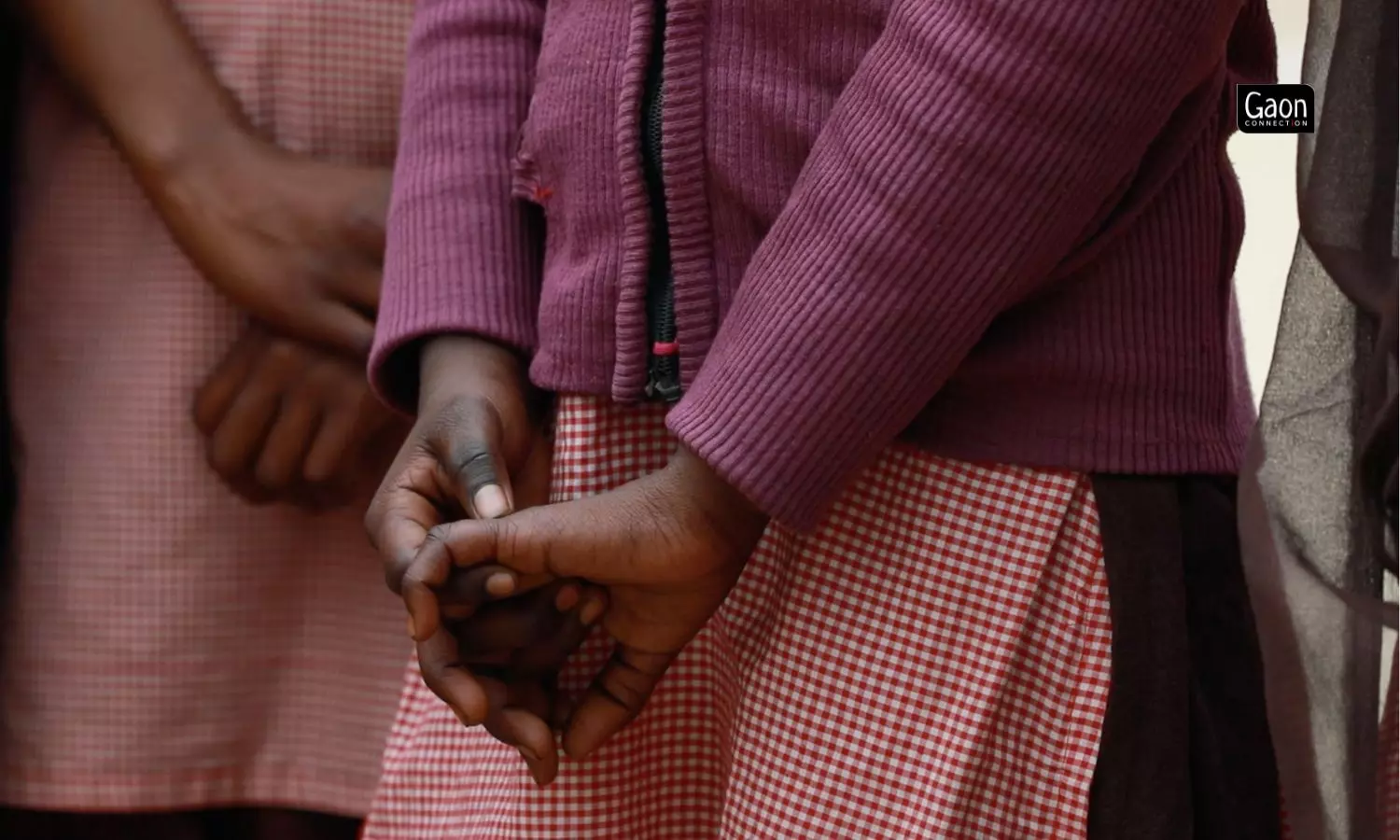
“Our ma’am said that we shouldn’t shy away from talking about it and should discuss it more openly. I don’t know why but I am a little shy,” Anjali, who now knows how to take care of her menstrual health now, told Gaon Connection.
“I boil the neem water and store it in a clean bottle. I use this throughout my periods to clean myself. Also, I now know that one should change the sanitary pads three to four times in a day,” the teenager said.
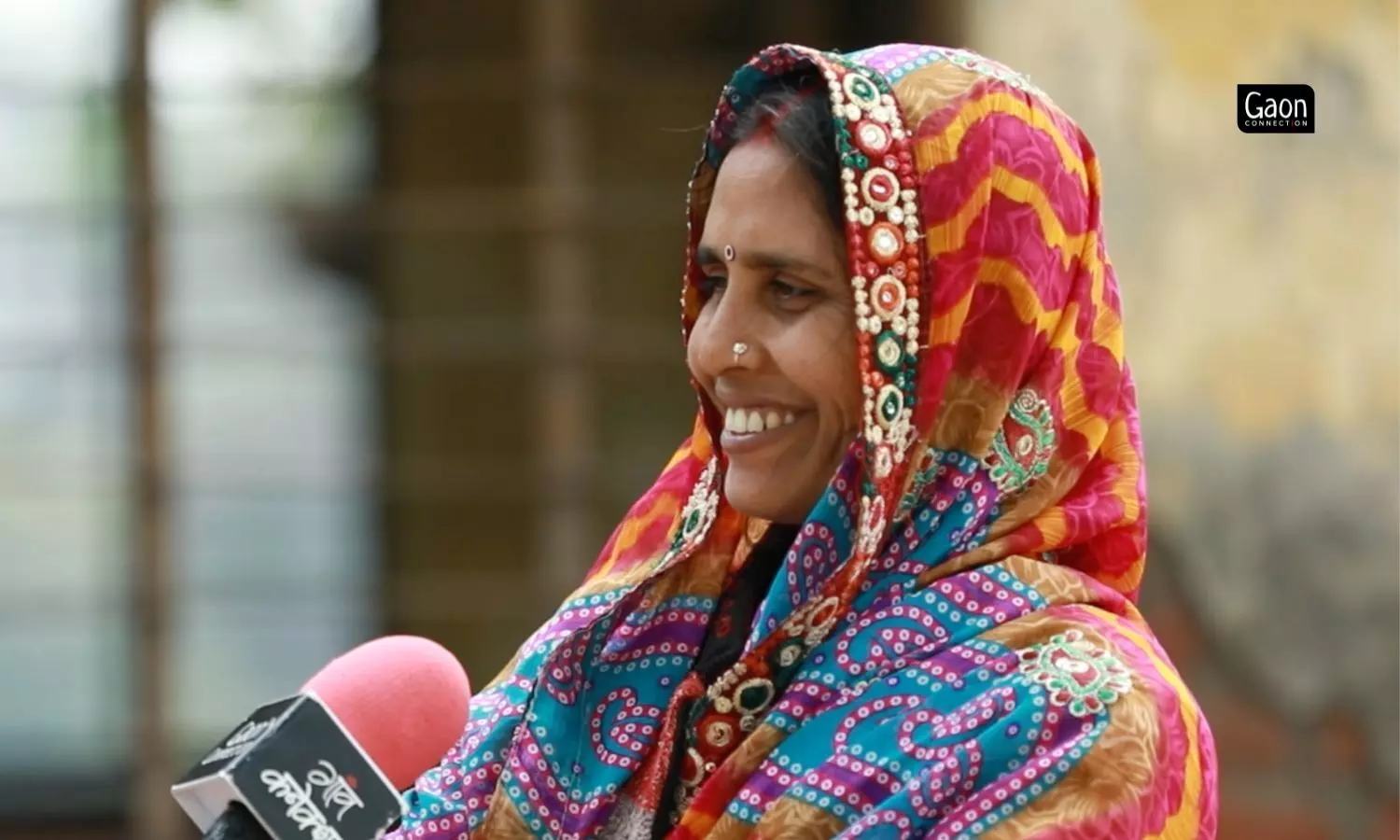
Savita Giri, a mother of two, was never taught about menstrual hygiene in school, but her daughters are exposed to this information.
Rao has taken the menstrual health awareness campaign to include the mothers of the girls too.
“I have studied till class V and we were never taught about these things in school. The result is we hardly knew how to handle our bodies when the periods arrived,” Savita Giri, whose two daughters, Sanjana and Chandani, study in class VII and class VIII respectively, told Gaon Connection. “I also suffered from an infection once and had to see a doctor for the same,” she added.
Savita is happy that things are different now. “It is really good that they are being taught about it at a young age. How will they learn unless it is spoken of,” she said. Savita is quite okay with the idea of discussing menstrual health with her younger daughter who is yet to get her periods.
Rao’s efforts to spread awareness on menstrual health has helped Suman Choudhary, the ASHA in Brahmpur.
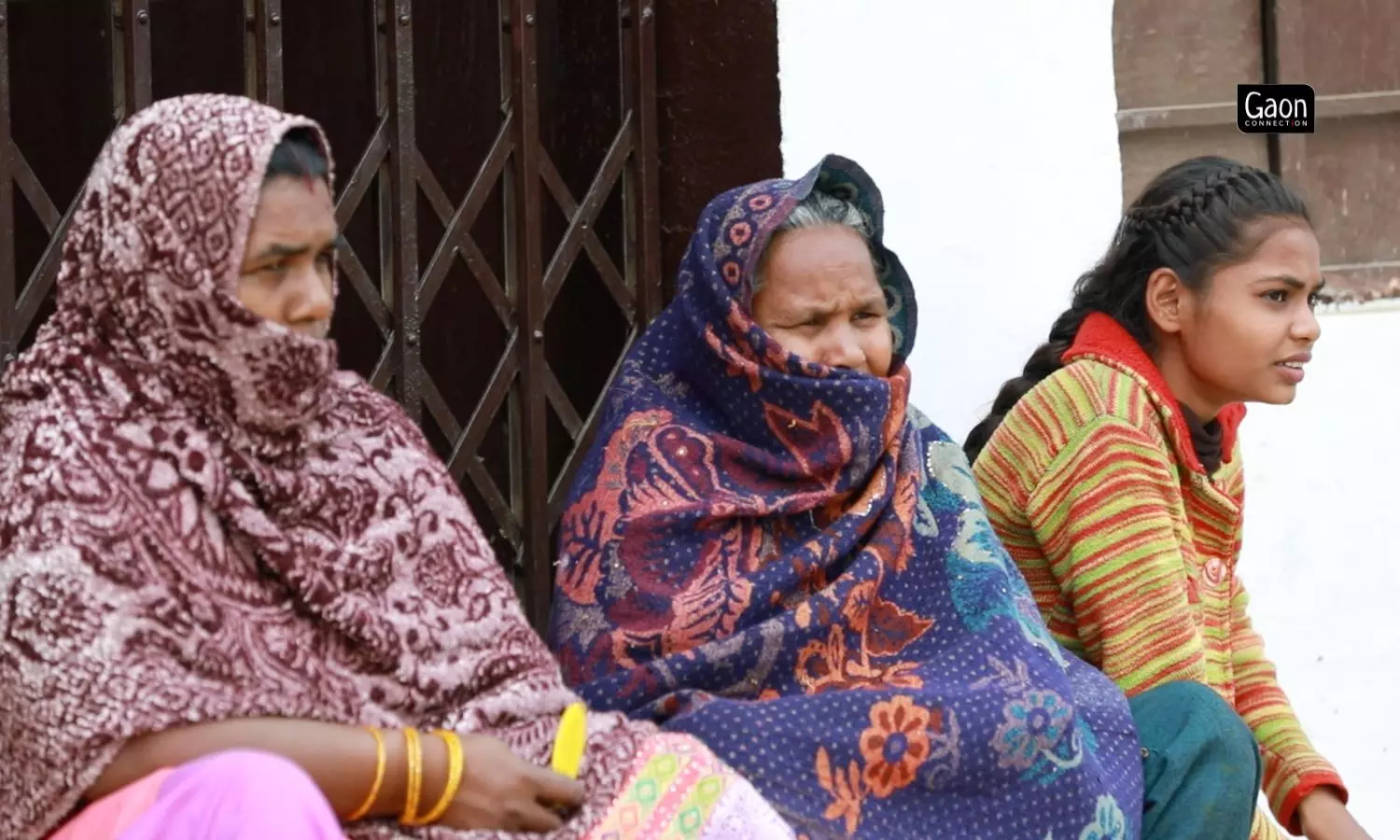
Shringika Rao has taken the menstrual health awareness campaign to include the mothers of the girls too.
“I go from door to door to educate people to use pads instead of dirty clothes during periods. I also tell them about how it can result in cervical cancer but it takes time to bring a change especially when many can’t afford sanitary pads,” Suman told Gaon Connection. The Asha worker acknowledged that the teacher’s ‘special classes’ could be the catalyst to speed up the awareness about menstrual health amongst the women in the village.
Meanwhile, the dedication and commitment of the teacher at the government school has led to a rise in enrollment. “There were barely 20 students who would attend when I first joined the school. Now there are almost 70,” Rao said.
For free download of Teacher Connection e-magazine, click here.



